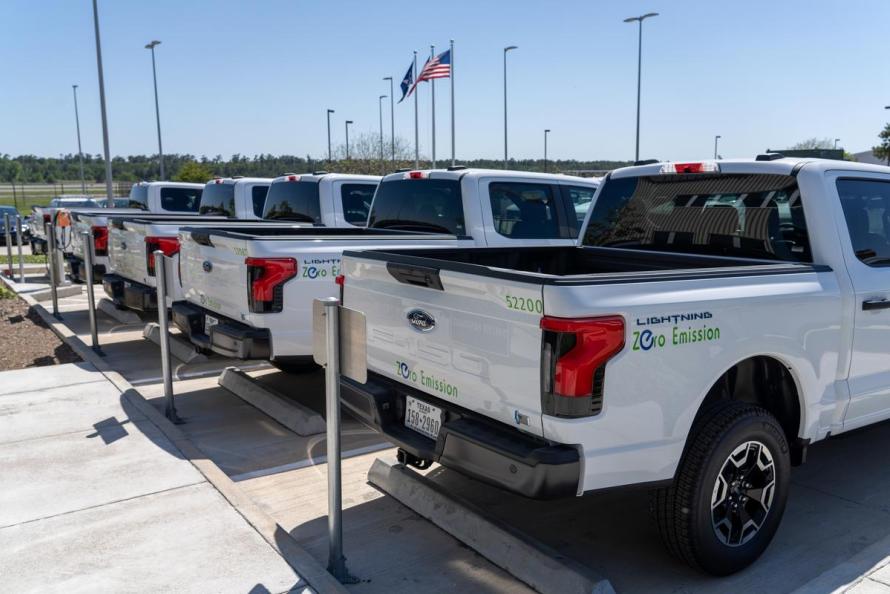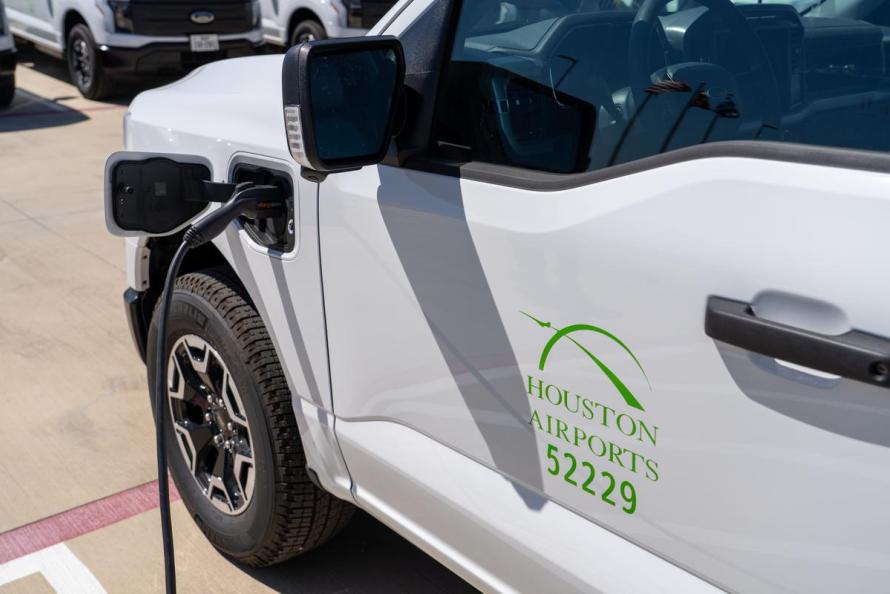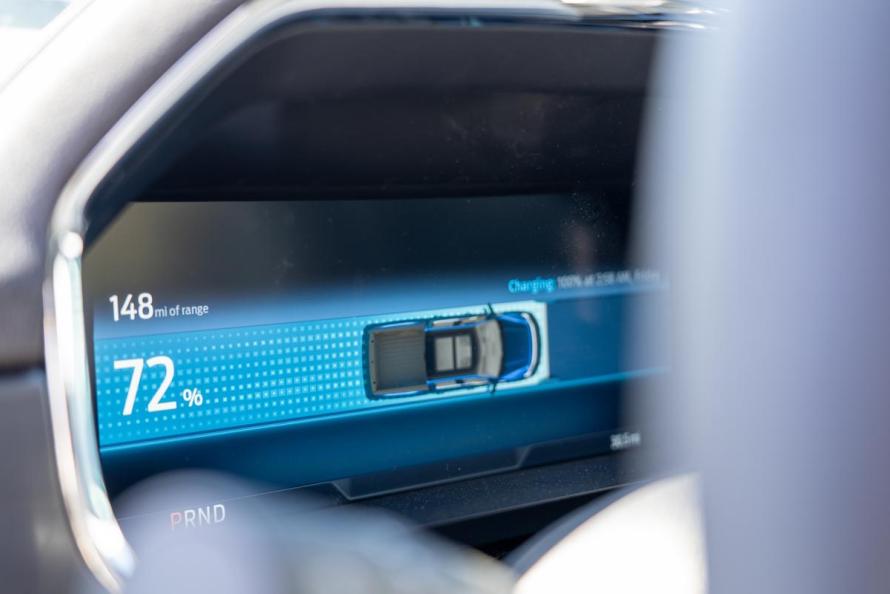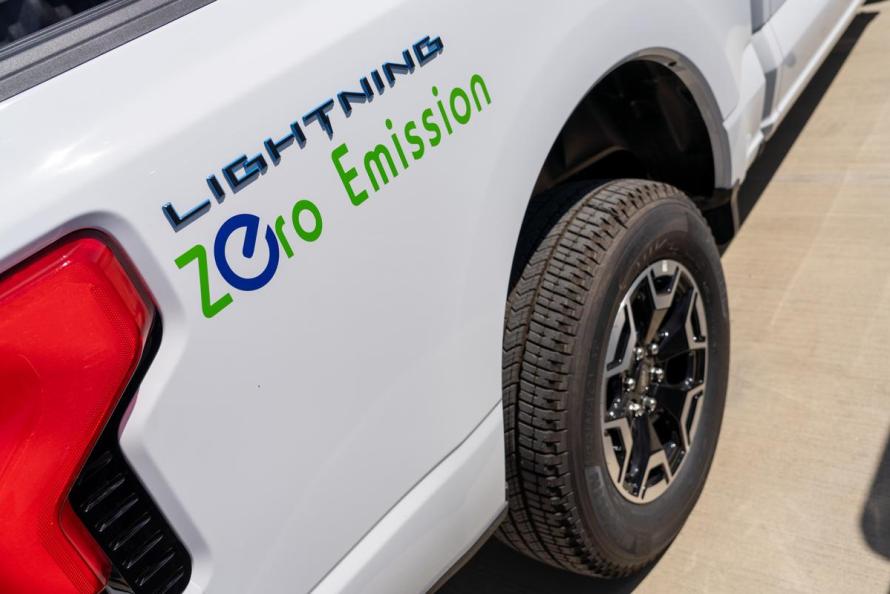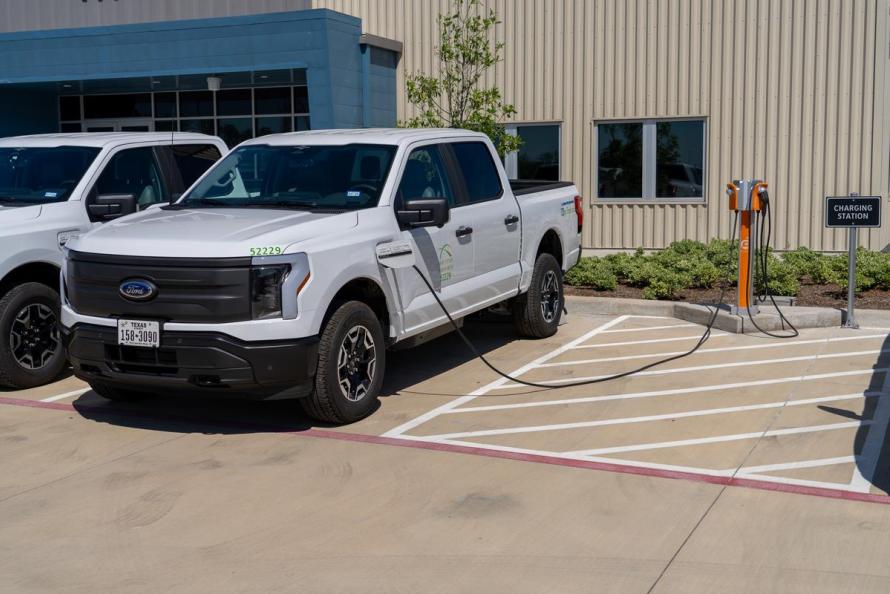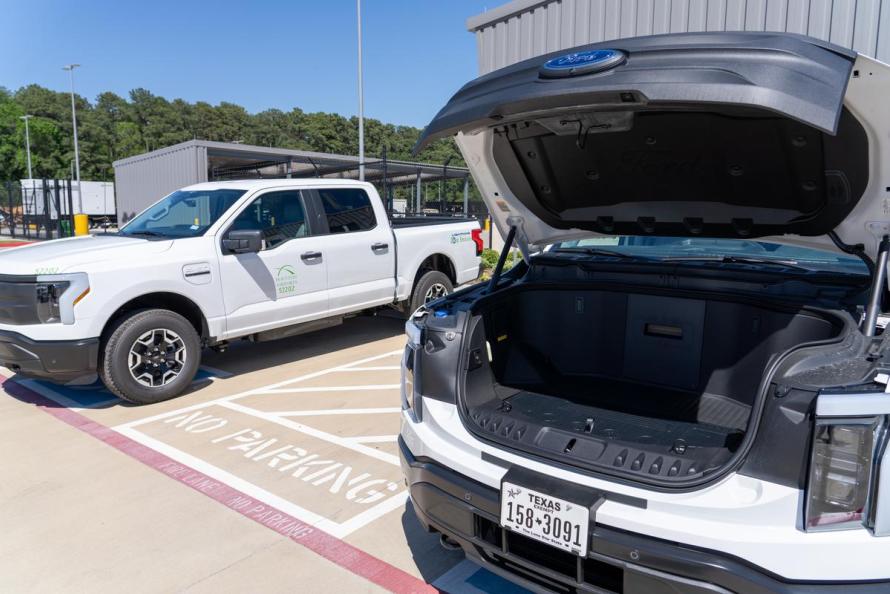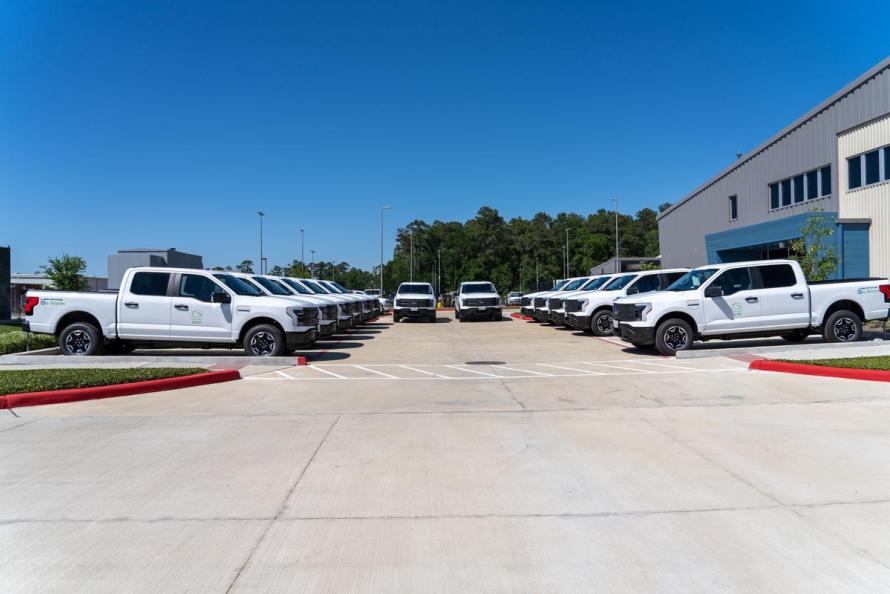As Houston Airports embraces sustainability by incorporating all-electric vehicles into its fleet, it invites the community to join in fostering a greener future for aviation.
In a stride towards sustainability and modernization, Houston Airports announces the arrival of its first batch of Ford F-150 Lightnings, marking a significant step in its commitment to environmental responsibility. With 13 out of 25 ordered vehicles now included in the airport system’s fleet, Houston Airports is set to revolutionize its operations while staying true to its pledge of carbon neutrality by 2030 for light-duty fleet vehicles. The entire airport system, which encompasses George Bush Intercontinental Airport (IAH), William P. Hobby Airport (HOU), and Ellington Airport (EFD), is working to become carbon neutral by 2050.
The seamless integration of these all-electric trucks into the Houston Airports fleet speaks volumes about the organization's dedication to reducing its carbon footprint. Spearheaded by the Houston Airports Maintenance Division, 12 charging stations, which include 24 electric plugs, have been installed across facilities at the Houston Airports Administration Building, George Bush Intercontinental Airport (IAH), William P. Hobby Airport (HOU) and Ellington Airport (EFD), ensuring a smooth transition to eco-conscious transportation.
Featuring prominent branding emphasizing "zero emissions," these new additions to the Houston Airports fleet exemplify the organization's commitment to sustainability, reflecting the broader ethos of the City of Houston's eco-conscious initiatives. The Ford Lightnings are expected to be used across multiple Houston Airports divisions, including Maintenance, Operations, IT and Infrastructure.
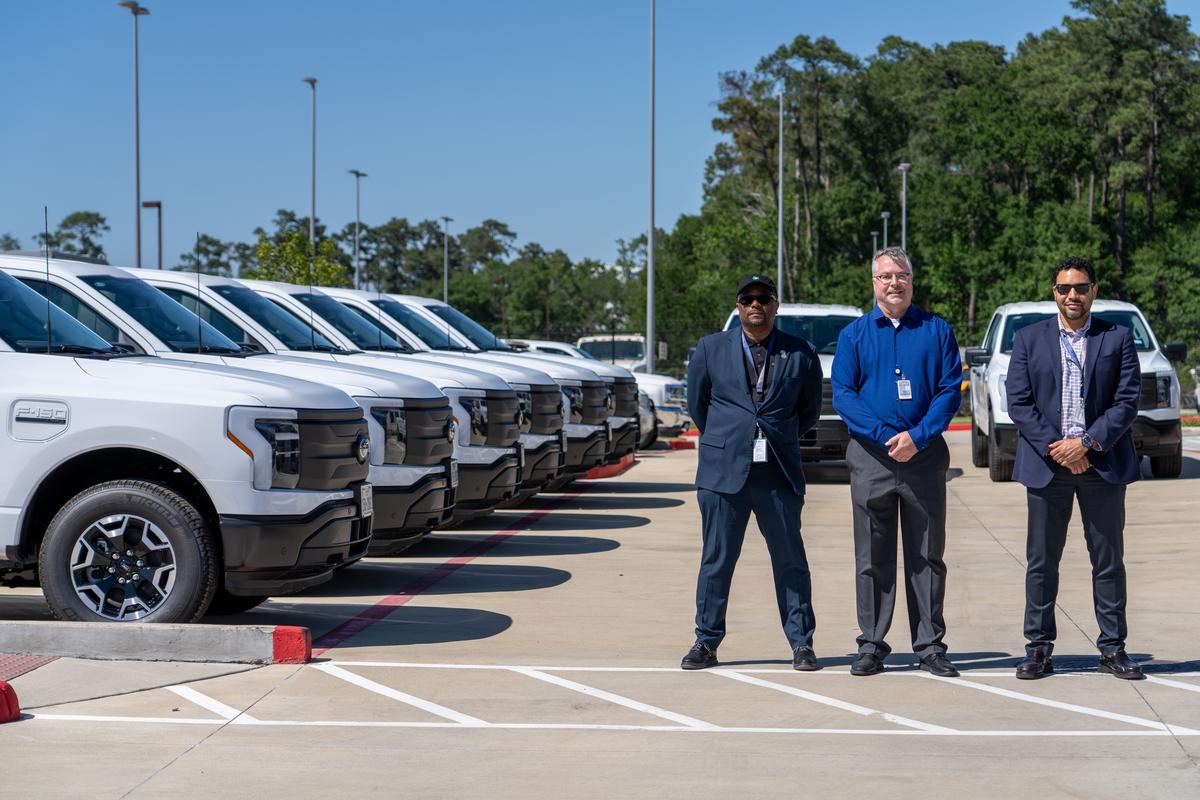
“The arrival of the Ford F-150 Lightnings signifies a thoughtful step towards a more sustainable airport system,” said Scott Hill, Interim Chief Maintenance Officer for Houston Airports. “As our fleet inches closer to zero emissions, we are not only reducing our carbon footprint but also modernizing our operations to meet the evolving needs of our community.”
The Houston Airports Maintenance Division is collaborating with the Houston Airports Infrastructure - Sustainability team on the transition to EV fleet vehicles.
According to the Houston Airports Infrastructure Division, over a lifetime of about 225,000 miles, each F-150 Lightning stands to save nearly 80 tons of CO2 and 8,777 gallons of fuel, which would cost nearly $26,331 at $3 a gallon. Multiply that by 25 for the initial fleet of all-electric trucks, and the forecasted fuel savings for Houston Airports is more than $650,000.
Embracing an all-electric fleet not only reinforces the environmental objectives of Houston Airports but also aligns with its business model of promoting efficiency and eco-consciousness. With plans to expand its electric vehicle lineup, Houston Airports aims to set a precedent for sustainable aviation practices.
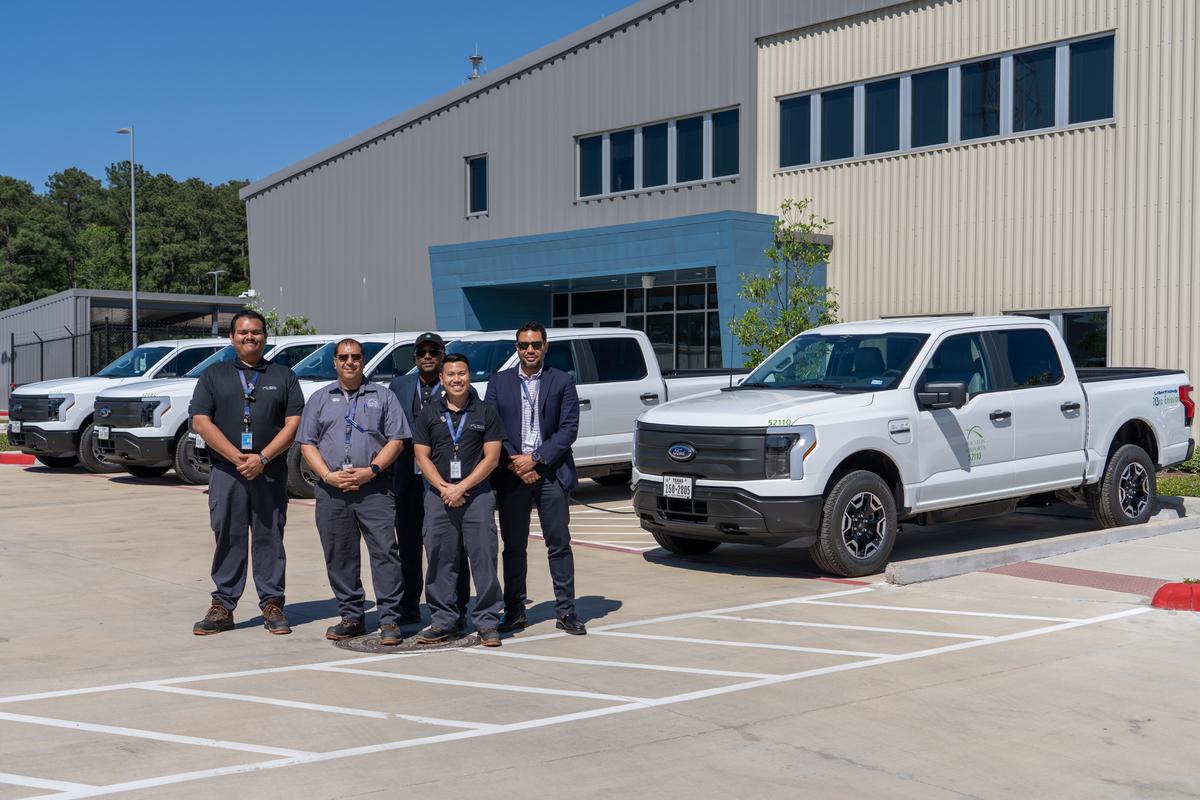
“Houston Airports has plans to purchase more all-electric vehicles as we continue to replace our aging fleet of fuel-powered vehicles,” said Terrance York, Division Manager of Maintenance for Houston Airports. “Looking ahead, Houston Airports anticipates analyzing and comparing fuel consumption, which will likely motivate us to buy even more all-electric vehicles.”
This data-driven approach underscores the organization's commitment to continuous improvement in environmental practices. Through innovation and collaboration, Houston Airports strives to lead by example, demonstrating that sustainability and progress can go hand in hand.
